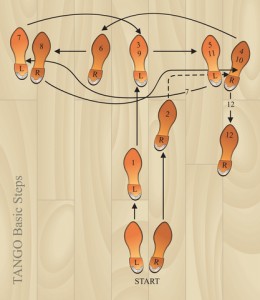 It’s Autumn, and you can see the seasons changing, multi-colored wind blown trees, rustling leaves falling down everywhere, creating a stirring, whirling dream world.
It’s Autumn, and you can see the seasons changing, multi-colored wind blown trees, rustling leaves falling down everywhere, creating a stirring, whirling dream world.
The white moon becomes the blue moon which balloons into the orange moon ~ the Autumn moon we remember from long ago and faraway comes back to visit us once again.
Even though the air of Autumn feels and smells strangely different, something is in the air, and we’re all breathing it in, taking it inside of us.
Of course, how you experience Autumn depends on where you are in the world. Isn’t that true? Though Autumn isn’t quite as vibrant or dramatic here as it is in other places, it can still be a wonderfully romantic season (if it’s within you).
Here in the San Francisco Bay Area, there’s a quiet calm before the winter rains come. Still, it’s the time of the season for reflection. As the year winds down and we all slow down a bit for year-end retrospection, introspection amidst the noise of holiday celebrations and distractions. Time is passing, not everlasting.
As for me, I’ve been thinking about a peculiar 2012 trend in business: a tendency to use catch-all words and phrases to mean anything and everything. It is surrealistic. It’s such a supercilious, stupefying trend, and it’s happening everywhere I go: Inside mega-corporations, small and middle market companies, within the bandwidth of the “management consulting community.” We’re all breathing the same air, in boardrooms, in working meetings and sessions, in broad daylight, in the stillness of the night.
As organizational leadership consultants, Vitalia Consulting is in the process of expanding our multi-disciplinary consulting and coaching teams, and in the interviews, this strange phenomena is also evident. For instance, one thing I’ve noticed is that “change management” is being applied to every change initiative, and can mean anything to anyone. When words lose definition our language becomes blurred, and the power of words diminishes. In other words: “The main thing is to keep the main thing the main thing” is no longer true. Sure, “change management” can have different applications and be different interventions but, come on! Anything Goes? Are there no longer clear definitions to words, phrases, and terms?
I contend that this unsettling trend is not the natural evolution of our professional work, or the necessary interference of technology twisting the signals. More than ever, I am convinced that this disturbing trend has been incubating within the guiding principles and character of those who have the power to create, influence, and reinforce organizational culture, values, beliefs, norms, and the rules of the game. A simple suggestion: Change the leadership and you will change the culture.
So ask yourself: “Who am I? Where do I stand? Now that I know, what will I do?”
In the film “The Visioneers” the company is “the largest, friendliest, and most profitable corporation in the history of humankind.” Yet, the employees are exploding when they dare to dream and act on their dreams. It finally becomes an international crisis when the number exceeds 100,000 implosions. That’s when the President of the United States gets involved, supporting the corporation’s goal to manufacture a device (a relaxer) that will be fitted on the neck of every employee – to stop those dreamers who act on their dreams! In “The Visioneers”: The quickest way to kill your dream is to kill what you love most about your dreams.
Question why, in our multicultural society, when you’re asked to blow-out your birthday candles, you’re told from the moment you understood language, don’t tell your wishes aloud, and don’t even whisper your wishes – because if you do – your wishes won’t come true. We inherit these odd customs and traditions, and if we don’t question them, we pass these deranged values and beliefs onto our children. The same thing happens in organizations. Nothing changes if nothing changes.
“Leadership Development” is another one of those catch-all phrases that seems to encompass everything under the sun and moon and stars. Who wants to be leader? Step right up! Roll right up! Come with us on the magical mystery tour. All you need is love and information, the right suit and tie, the right haircut, some leadership coaching, and probably the right shoes. And: Yes! You too can be a leader! (Sorry folks, this doesn’t work in reality, at least, not in the long run.)
Leadership Development is reserved for those who have the innate capacity, talent, and potential to be a leader. Perception and self-assessment are not enough to ensure that the right people are selected and promoted.
Enlightened Leaders are born, not made. We believe: The identification, assessment, nurturing, and cultivation of emerging leaders should be a business imperative. Opportunity is the missing piece of the puzzle. It doesn’t matter how much innate leadership capacity, talent, and potential there may be in your organization, it lies dormant and fades away, without opportunity.
Find the keyhole, turn the key, open the doors of perception to build organizational capability and expand leadership capacity. Align your open organization with the strategic business vision of your Enlightened Leadership.
Imagine you have a metaphoric factory that produces leaders. Be rational. You can’t develop anyone or produce anything without having the right materials. Besides, even with the right materials, you can’t develop anyone or produce anything if you’re in the wrong factory!
In much the same way, your organization must be tooled to manufacture what you want. How is your organizational culture set-up? Do you know? Is it set-up to produce the absolute best managers and leaders for your business? Well, is it?
You’ve probably experienced leadership development programs which espouse inspiration, motivation, and modeling – to be replicated throughout the organization. Blah, blah, blah…
Inspiring What? Motivating What? Modeling What? Why? To What End?
I despise “leadership training and management training programs” which presume that what can be taught can necessarily be learned, that those who are selected, promoted into management can necessarily become leaders. Remember, leadership is not about position, title, or entitlement.
Leadership is behavioral. Enlightened Leaders are hybrids: the right blend and balance of Knowledge | Emotions | Thinking | Abilities | Actions. Behavioral actions are the results of how these competencies are developed, or not. Most organizations still fail to fully understand, embrace, engage, and capitalize on these competencies in meaningful ways.
In our vital project-based research: After all these years of countless workshops, seminars, and webinars, we find that most companies are still mass-producing bad, ineffectual managers and leaders with these salient traits experienced by the human beings who report to them:
- Weak management/leadership competencies and capabilities
- Low Emotional Intelligence (EQ)
- Absence of relationship-building skills
- Hypocritical
- Pretentious
- Autocratic: Suppressive, Oppressive, Depressive
- Incapable of dealing with ambiguity, and making sense of it
- Inability or unwillingness to adapt to change
- Reactive
- Apathetic
- Unwillingness to admit own ignorance
- Neglectful of own personal development
- Organizational decisions based on corporate politics
- Inability or unwillingness to develop others
- Ineffective Communication Skills
- Untrustworthy
- Ineffective task management
- Inability to accept feedback
- Unethical: Selfishly blaming others for their failures, while taking credit for the successful ideas of others
- Insufficient Production (Bottom-line: Is it any wonder why?)
With the warning signs just listed, what would you do with the incompetent managers and leaders in your company? What to do? What to do? What would you say are the remedies to this dilemma? What do we do with dysfunctional managers and leaders?
Far too often people are promoted into management/leadership positions for the wrong reasons ~ mainly because of their prior functional performance or who they know or both. Either way, without any structured assessment, these are hardly predictors of future management/leadership effectiveness and success.
Think about it…
- Not everyone who aspires to being a great scientist becomes one.
- Not everyone who aspires to being a great musician becomes one.
- Not everyone who aspires to being a great teacher becomes one.
- Not everyone who aspires to being a great surgeon becomes one.
- Not everyone who aspires to being a great actor/director/producer becomes one.
- Not everyone who aspires to being a great athlete becomes one.
- Not everyone who aspires to being a great psychologist becomes one.
- Not everyone who aspires to being a great software engineer becomes one.
- Not everyone who aspires to being a great artist becomes one.
- Not everyone who aspires to being a great politician becomes one.
- Not everyone who aspires to being a great attorney becomes one.
- Not everyone who aspires to being a great parent becomes one.
- Not everyone who aspires to being a great consultant/coach becomes one
- Not everyone who aspires to being a great manager/leader becomes one.
Get the message. Salieri could not become Mozart, no matter how strong his desire. No band will replace ever “The Beatles.”
It’s the difference between wishes and dreams.
The Ethos of Enlightened Leadership is about the distinguishing character, sentiment, moral nature, or guiding beliefs of an individual, organization, or business. You want to experience satisfaction? Try This. You’ll love it!
We are Vitalia Consulting. We are awakeners.
Marc Ortiz de Candia | Executive Partner | Vitalia Consulting







